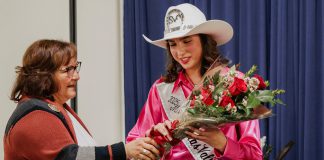You know what I don’t like, let me tell ya what I don’t like. I don’t like all these little shortcuts that have infested the King’s English in past few years. I have had to be aware of how to use words as I navigated through a half dozen writing classes over the years; creative, journalistic, screenplay, short story, academic and poetic writing all have, of course, distinctive ways of using words.
(If any you think that I retain all that I learned in those classes, all I can say is thanks for the compliment, but I don’t deserve it.)
There are many times, admittedly, when the shortening of words can be done to avoid lengthy repetitions, when using abbreviations we don’t read Monterey County Agricultural and Rural Life Museum or Greenfield Recreational District after the first appearance, we read MCARLM and GRD. Some of these abbreviations are long established and well known: NAACP, NASA, POTUS, AFL-CIO, CDC and scores of others are commonly seen in print.
No, what I’m talking about is the paring down of the language appearing in written form. This type of butchery upon the language was first brought to my attention in an Oral Interpretation class at Hartnell College in 1970, I still remember the instructor (One Hal Ulrici, Mr. U, my first college director) said to a classmate “Jeet”; his inflection made it sound like a question. The degradation, he explained, went like this:
“Have you had your lunch yet today?” to “Have you had your lunch yet?” to “Did you eat lunch yet?” to “Did you eat yet?” to “Did you eat?” to “D’ja eat?” to, finally, “Jeet?”
I remembered this lesson when in the Ozark Mountains of the USofA, I heard an exchange that conveyed the message that a mother wished her 11-year-old son, sprawled on the sofa watching TV, to do a chore for her. It consisted of two utterances (hyphens added for pronunciation purposes not to indicate pauses): “Trash” and “Ah-ownt-awnto.” Translation: “Will you please take the trash bag outside?” and the response, “I don’t want to.” Concise, I suppose.
(For those of you curious ones: the mother had a few more words to say, but not for publication; the boy didn’t say much more, yelped a few times when her foot made contact with his nether parts, but no real discernable words and, yes, the trash got taken out.)
We all shorten our sentences at times when the message can be communicated in shorter terms, but with the advent of the silicon chip, we have the technical ability to communicate via written word in much smaller spaces, so now we can really do some damage to Webster and Funk & Wagnalls and Shakespeare or anybody else who tries to tell us how to use our language.
I remember my first experience with this type of communication was when pagers first came out. While never owning one myself, my daughter and son had them when they were teenagers. The purpose of these gadgets was to notify the owner that they needed to get to a phone and call the number showing on the little screen.
But the message I saw on my daughter’s screen was sent from her brother informing her she was in some sort of hot water with her mother, the screen showed UR911; you are in trouble.
And so it began.














